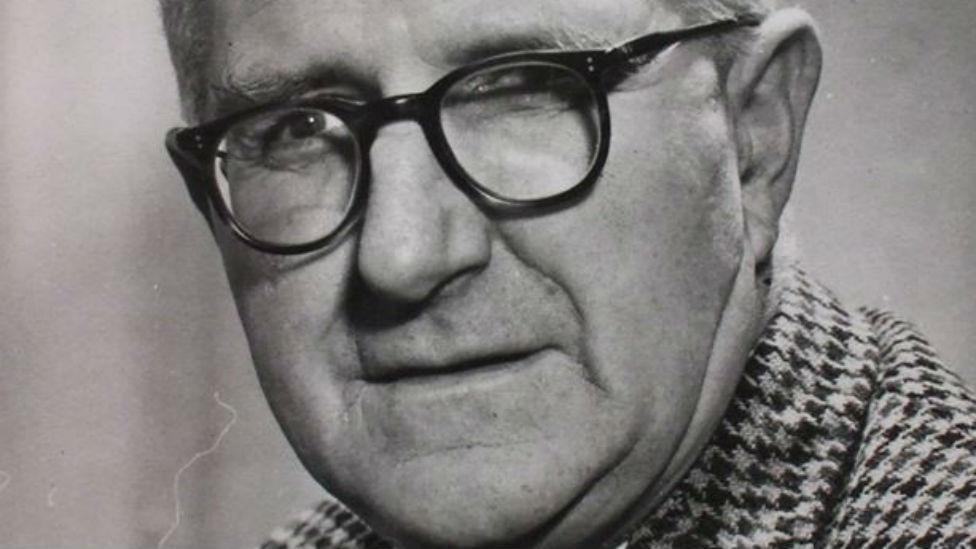WW2 pilot captured in Guernsey mistook greenhouses for white cliffs of Dover
- Published
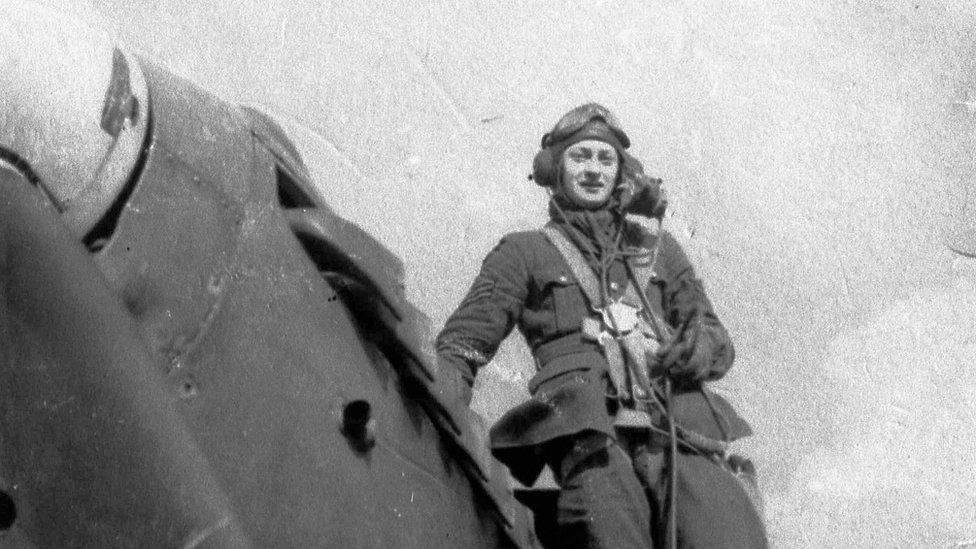
Robert Stirling pictured with a Hurricane fighter aircraft
A WW2 Royal Air Force pilot baled out into German-occupied Guernsey after mistaking greenhouse reflections for the white cliffs of Dover.
With his fuel running low Sgt Robert Stirling chose to leave his plane landing on the uninhabited Lihou island off Guernsey's west coast.
The 23-year-old pilot turned himself in to police and the German military after being sheltered overnight by a couple.
More details of the tale were pieced together by tour guide Tim Osborne, external.
Sgt Stirling, from Glasgow, was pursuing a Luftwaffe Bomber on a routine patrol in his Hawker Hurricane on 11 April 1941.
During the night-time chase, the young pilot realised he was dangerously low on fuel and attempted to return to Exeter where he was stationed.
Unfortunately for Sgt Stirling, his compass was broken and during his attempt to navigate back to base he believed the reflection of the island's thousands of greenhouses was the south coast of England.
At the time Guernsey had an extensive horticultural industry, with significant swathes of the island's landmass covered in glass.
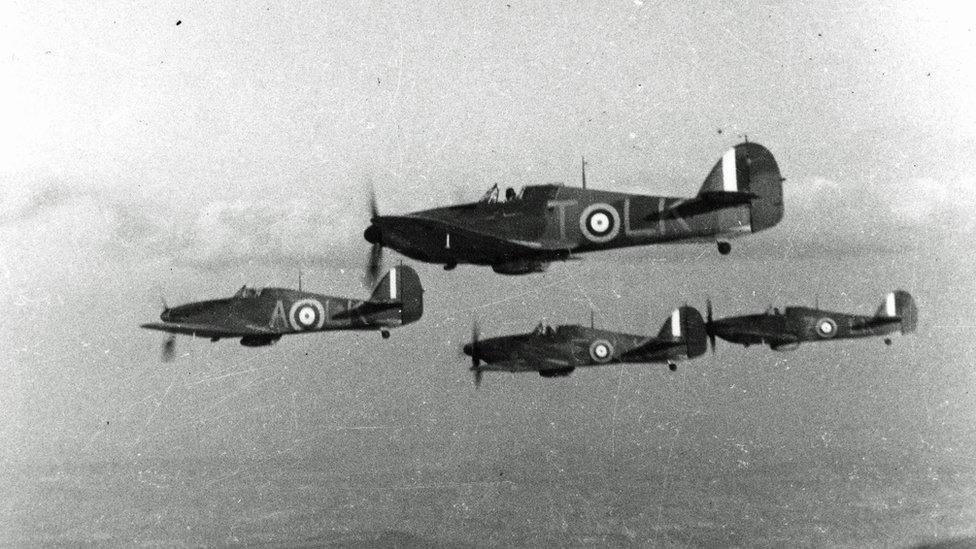
Sgt Stirling was flying a Hurricane with 87 Squadron when he was forced to bale out and parachuted into Guernsey
Rather than attempt to crash land in the dark, Sgt Stirling opted to deploy his parachute and landed without injury.
After crossing the causeway which connects Lihou to Guernsey at low tide and unknowingly making his way safely through a minefield, he ended up at a nearby cottage.
The owners, Tom and Myra Brouard, fed and sheltered the pilot, until curfew ended the next morning when he gave himself up to prevent putting them in harm's way.
Sgt Stirling was taken to a prisoner of war camp in France where he stayed for the remainder of the war, despite several escape attempts.
Meanwhile, he was missing in action and presumed dead to his family and friends.
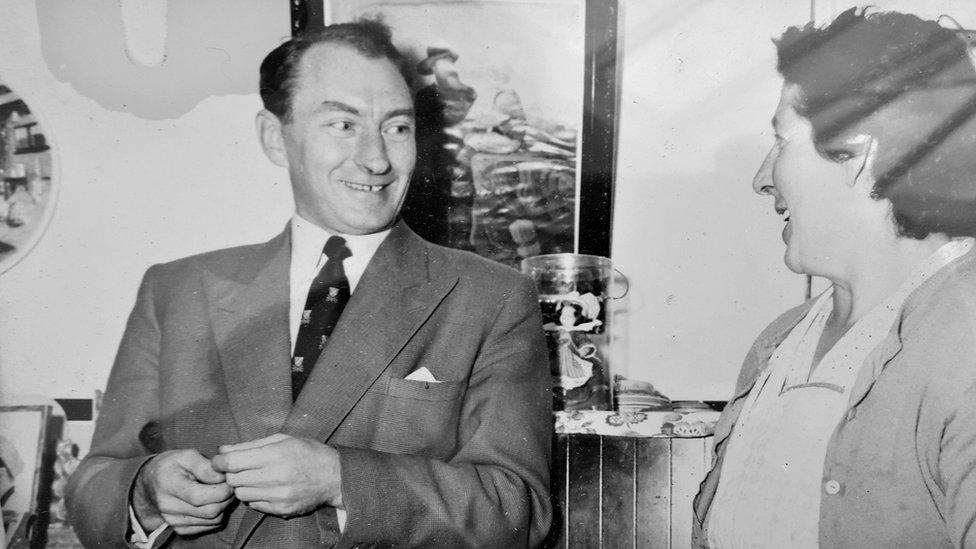
Sgt Stirling returned to Guernsey for a visit in the 1950s, when he met the Brouards once more
Three weeks after the capture, an aunt of Sgt Stirling who lived in Canada contacted his parents to let them know he was alive.
Remarkably, she had been listening to the radio and personally heard a German propaganda broadcast reporting he was interred in the camp.
'Overwhelmed'
Tim Osborne started researching the "remarkable" tale after being given Tom Brouard's "meticulous" records of the events by his daughter Pat Jenner, who came on one of his tours last autumn.
He pieced together the events after getting in touch with Sgt Stirling's family, local archives and other records.
Mr Osborne said: "I'm so pleased it came together, I've had quite a lot of feedback from it.
"People found it it fascinating and a lot of people had never even heard of the story."
Mrs Jenner explained her parents rarely spoke about the occupation growing up and a lot of the detail uncovered was new to her.
She said: "I'm just overwhelmed with it really and just thankful to Tim.
"It was a story that I felt needed to be put out there, because my mum and dad didn't speak much about it and were very coy about it."
Related topics
- Published29 November 2020
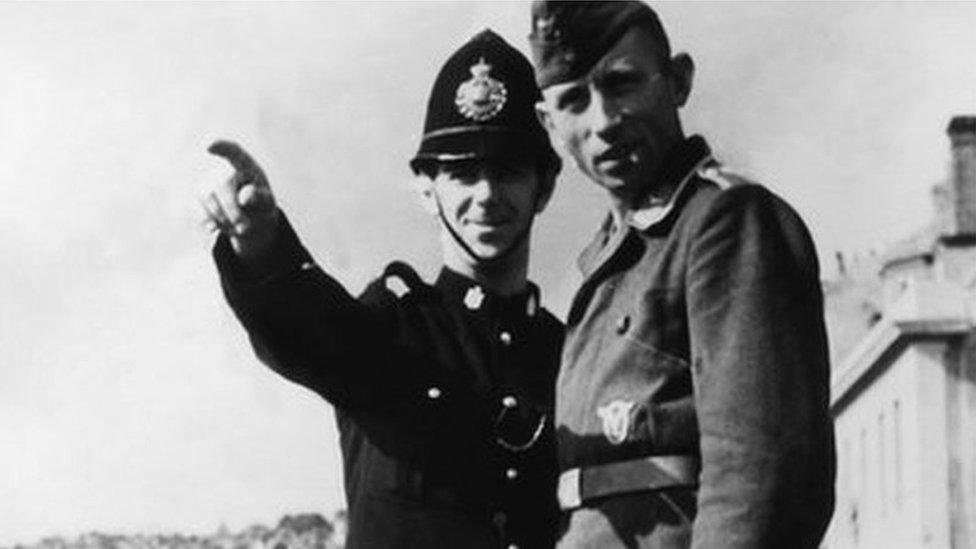
- Published2 February 2018
